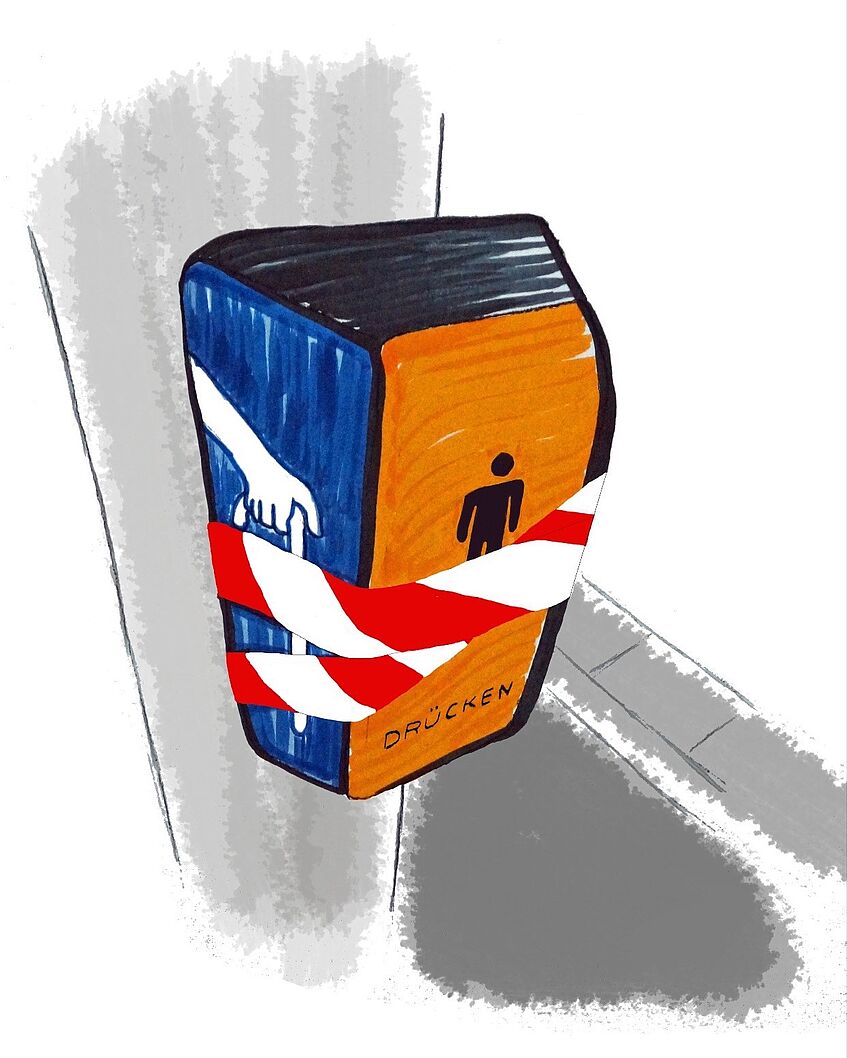Inclusive Education

In a campaign in downtown Marburg, traffic light buttons were taped overnight. This had the effect, that the traffic lights switched to green much more frequently for pedestrians and cars had to wait. The barriers for pedestrians were thus significantly reduced by this simple intervention. The action shows that even small changes in everyday life can lead to a more barrier-free environment and contribute to an inclusive society.
The work area of Inclusive Education pursues a fundamentally human rights and resource-oriented approach, in particular regarding educational issues. The staff initiate and promote academic activities and structural developments aimed at implementing the UN Convention on the Rights of Persons with Disabilities in the field of education. In their research and other activities, the team locates itself in a global and international context.
Inclusive Education deals with approaches to education, teaching and development that take their starting point from the rights of vulnerable and marginalised – especially disabled – people, speak for their participation in all areas of life and aim at a structural change of institutions to meet the needs of the diverse conditions and the needs of all people.
For the academic staff working in this work area, participative research approaches and the promotion of the right to communicate (e.g. by means of Austrian Sign Language as a first language, plain language, augmentative and alternative communication) are key areas of development, especially in the school sector. Moreover, societal challenges in the context of intersections, e.g. disability, migration and education, are relevant as well.
Since the winter semester of 2016, students can choose the "specialisation in inclusive education (focus on impairments)" as an alternative to a teaching subject in the teacher education programme. Our team teaches courses in this programme as well as in the Allgemeine Bildungswissenschaftliche Grundlagen (general expertise in education). Teaching is based on the above-mentioned perspectives.
On the development of the specialisation in Inclusive Education in the teacher education programmes for secondary school teachers
On the basis of a recommendation paper issued by a commission of experts in 2011, the National Council adopted a new law on teacher education in June 2013, which unified the existing teacher education programmes for secondary schools and upper secondary schools into a single teacher education programme for secondary school teachers. At the same time, a parliamentary motion for a resolution, urging universities to establish a degree programme focusing on inclusive education, found a large majority.
Since the winter semester of 2016, the North-East Schools’ Group (a cooperation between the University of Vienna and the University College of Teacher Education in Vienna, the University College of Teacher Education in Lower Austria and the University College of Teacher Education of Christian Churches Vienna/Krems) offers the new teacher education programme at secondary level. The specialisation in Inclusive Education (focus on impairments), which students can select as an alternative to a teaching subject, has been newly established. This programme is available at the bachelor and master levels.
The previous 3-year programme in special education provided by the university colleges of teacher education is being phased out. Since 2015, no more new entrants have been accepted. The previous areas of activity for special education teachers (in centers for special education, referred to as "Sonderschulen" in German) will in the future be covered by the graduates of the specialisation in inclusive education.
